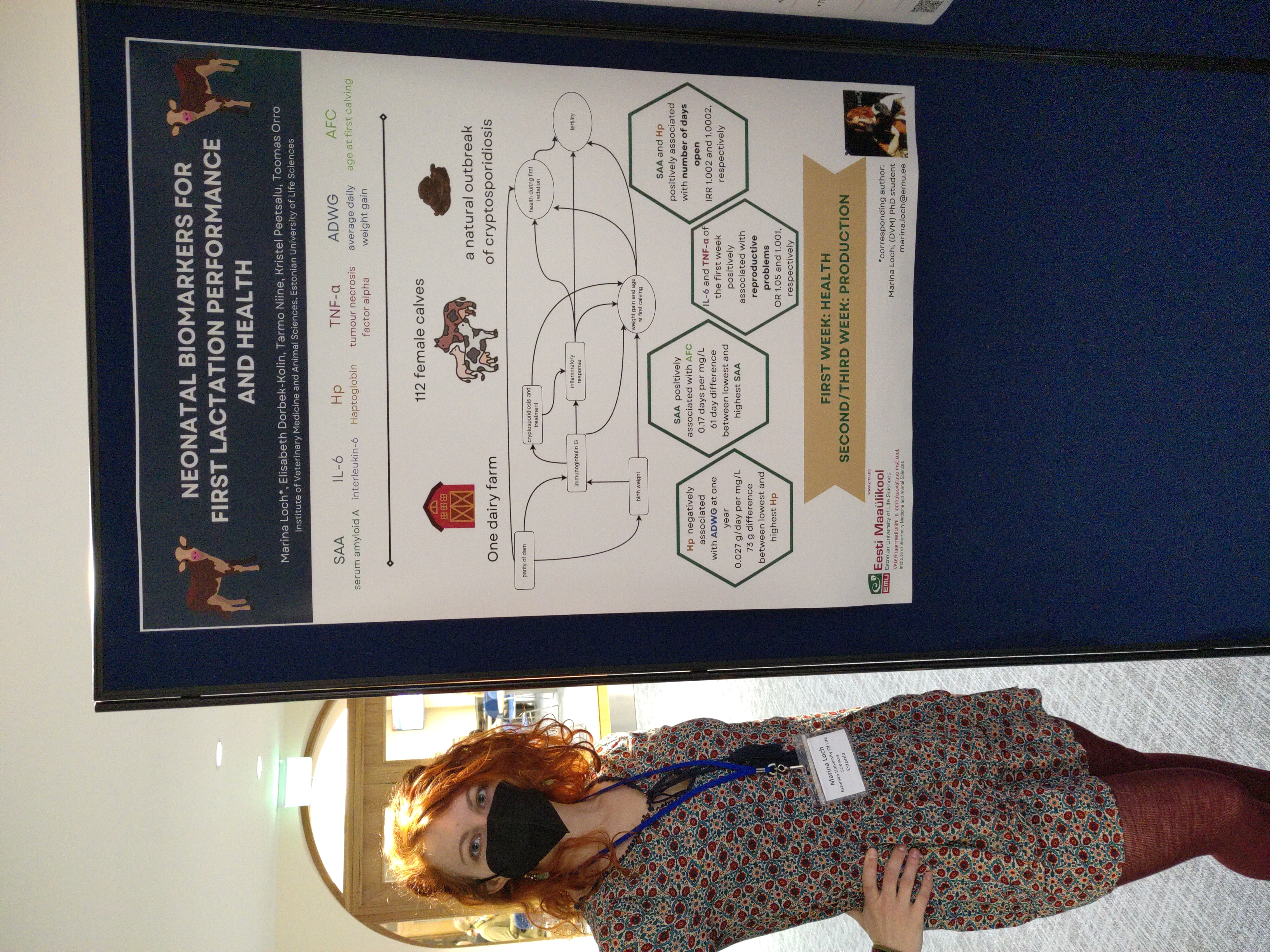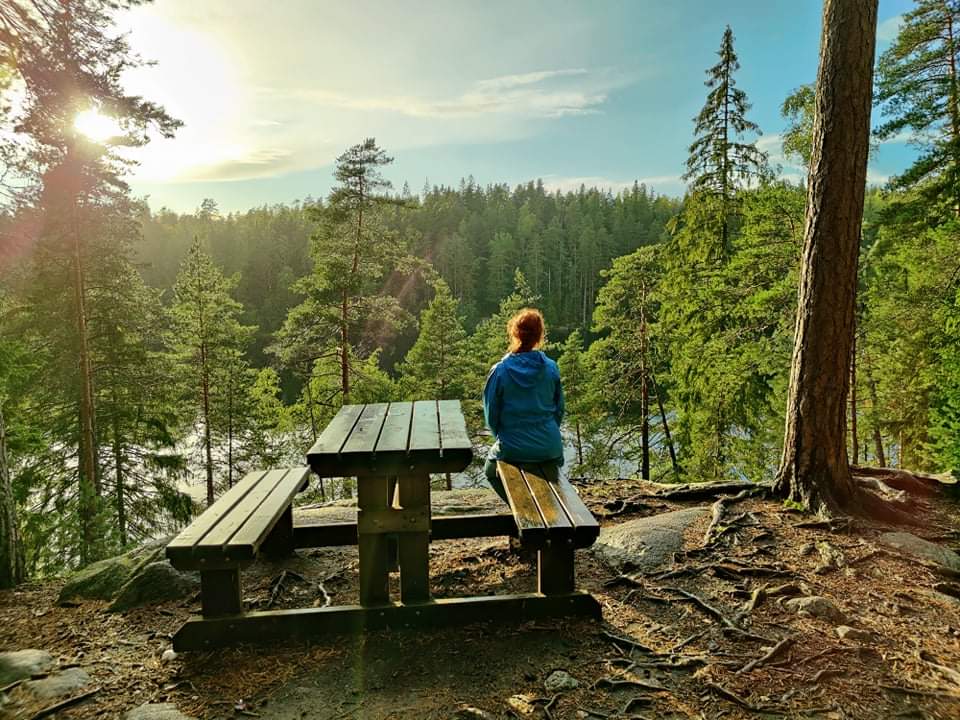This blog post was written by Marina Loch. Marina originally came to Estonia for the Erasmus exchange semester during her undergrad studies, but loved it so much that she is now doing Veterinary Medicine PhD at Estonian University of Life Sciences.
“Everything is an adventure for you!” my friend said. She had started her PhD around the same time as I had, but while I had moved to Estonia to do it, she had stayed home.
“What do you mean?”
“Well, everything is new and exciting, and being abroad makes life easier!”
In that very moment, I angrily wanted to hang up the phone, but instead just changed the subject. Life was not easy and adventurous. Life was hard.
But it made me think. Was my stay abroad really just one big adventure, not “real life”? Was my PhD journey easier than hers? Or was my life more exciting because I was doing this abroad?
Of course, any PhD journey is an adventure. All studies are adventurous.
Life away from home is not easier.
I thought back at my exchange semester six years ago. I came to Estonia for the first time, and it would be for a limited time. When I left Estonia, my best friend said: “You are still exactly the same person you were when you arrived, and that is wonderful.” But back home, I didn’t feel the same. The time abroad had changed me. The question was, how.
“You can’t run away from your problems, that’s what I learned in my year abroad”, my partner keeps saying. What he means is this: when you are away from home, you see which problems are yours, and which are connected to your surroundings. I, for example, hate online banking. Remembering passwords, where to find what, keeping an overview of my finances, paying bills on time… That did not change when I opened a new bank account in Estonia. It’s not the fault of German banks, it’s me. But communication with lecturer’s got easier - and that was due to the different cultures at German and Estonian universities, not because I suddenly woke up one day having lost my fear to ask questions during lectures.
I learned something very important during that exchange semester: It is totally possible to have a life outside of university. Weekend-trips with friends, parties, trying new things… but because I had quality rest, and studied efficiently, I still did even better in exams than I had before.

Photo: An international conference where I presented results of my research
When I went back home, I took this freedom, this work-life balance, with me. I had also been an overly engaged student, active in multiple organizations at my home university. In Estonia, I dropped all of that, and instead used that time to exercise. Never before in my life had I exercised this much. So my new friends in Estonia probably had a different image of me than my friends back home.
Back in high school, I had also done a student exchange (to the USA). When I came back, I felt out of place. Not just because my English was now much better than that of all my classmates and the lessons were very boring now. I had one friend who could relate, who had also been abroad. He said: “You can reinvent yourself in new surroundings, you can stop being the shy know-it-all in the first row and instead be the clown in the last row, or vice versa. But in the end, you’re still you. Some things will always be the same.”
It turned out that I was a little bit of both – the last-row clown who didn’t pay attention, and the smart first-row kid who got really good grades. And I started embracing that.
So if being abroad makes it easy to discover yourself, does that mean life abroad is easier?
The answer is no.
There is a difference between being abroad for a few months and shifting your entire life into another country. After being in Estonia for two months, I can ask an acquaintance to go to the pharmacy with me and help translate. But after a year, I don’t want to ask an Estonian friend to come to the doctor with me. I need to manage daily life by myself. I need to do all the daily life things that are already annoying in the mother tongue: banking. Taxes. Phone bills. Dentist and gynecologist appointments. Insurance. Calling a plumber or electrician. Or being accused of hitting another car by a person who doesn’t speak English, so you have to navigate through this mess of explaining why it couldn’t have been you, taking to the police, to the insurance company…
Life abroad eventually just turns into life – except that you have to do it all in a foreign language.
Wherever you are, it is always a good idea to check in with yourself.
- Are you, who you want to be?
- Are you making your life harder than it has to be on purpose?
- Are you where you want to be?
- Why did you go there – to explore a place, to explore yourself, or just because the opportunities here are the ones you were looking for?
The life of a student who came to Estonia because the perfect PhD topic was offered here is probably very different from the life of a student who came here to explore Estonia.
Or, maybe, did you go because you were running away from something? Being away may help you figure out what it was, and if you actually can run away from it.

Photo: Me calmly looking at Estonian nature.
I met my friend from that phone call again a year later. She said I had changed, become more calm. Yes, I said, that’s the Estonian influence. I stopped taking things so seriously. I told her that I had a panic attack when I decided to buy a car from a person who spoke no English at all, but how in the end, everything worked out just fine. Is that an adventure? How much of that was due to me living abroad and how much was really the new situation (I had never bought something for this much money) and the fact that I felt too old to consult my parents on this?
After many months apart, we had a lot to catch up on, and we realized that although the language in which we managed our daily lives, and the climate we lived in where very different, most of the things were similar. The frustration that sometimes comes with doing research. Communication issues with supervisors. The stress of having to do normal things like laundry and grocery shopping while attending lectures, teaching seminars, and doing all the other the PhD things. New love. Finding time to exercise. Not getting enough sleep. Having to restructure your friends circle after graduating university. She too had changed.
Deciding what we wanted to do after graduating vet school (and deciding to stay in academia, while almost all other graduates tend to want to go work as veterinarians in clinics or stables), making the transition from “early twenties” into whatever comes next – real adulthood? –, and starting to understand what we wanted out of this life, that had changed us.
Yes, my moving to Estonia had played a big part in my development, but that was just my way. Living abroad for months or years will affect anyone, but in what way, no one can tell beforehand. Others may make the same development while staying at home. Or be changed by a pandemic and its consequences.
In the end, every life is an adventure. Every PhD is an adventure. And eventually, we all find our place in life. For me, that place seems to be not an animal clinic in Germany, but an auditorium in Estonia. For you, probably neither is. But it can’t hurt to try different things, to make the most of your time in Estonia, and to learn as much as you can about yourself, even if it means to find out that you do not want to work in a certain field, or that you just don’t like online banking.
It’s a piece in the puzzle of what you really want to do with this life.
Written by Study in Estonia Student Ambassador Marina Loch.
Read more about the veterinary medicine studies in Estonian University of Life Sciences.
Find out which other international degree programmes are available for you.
Read more blog posts:
